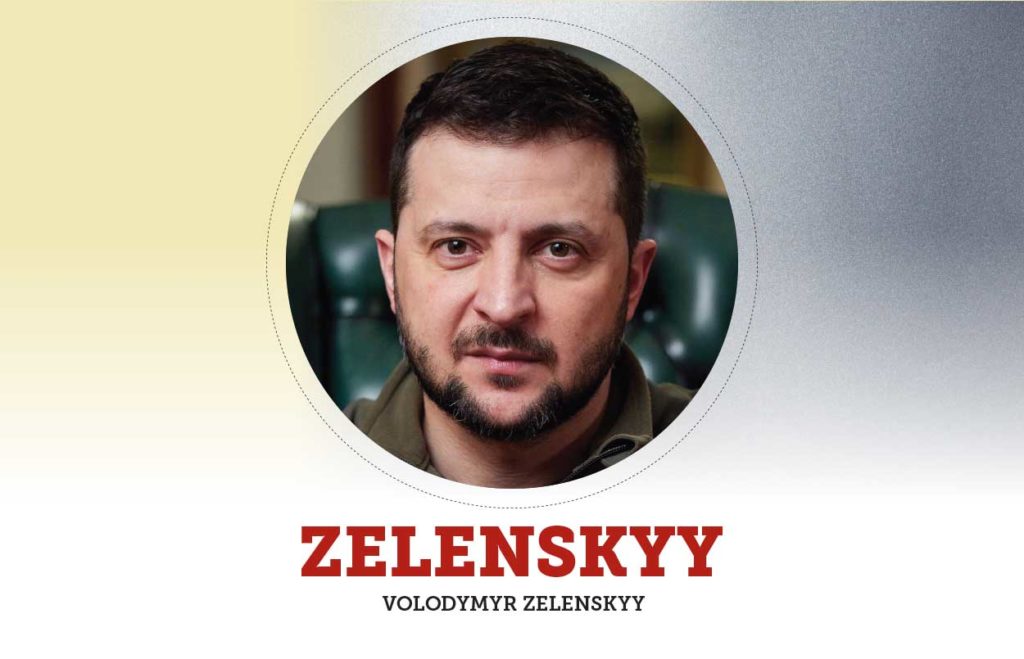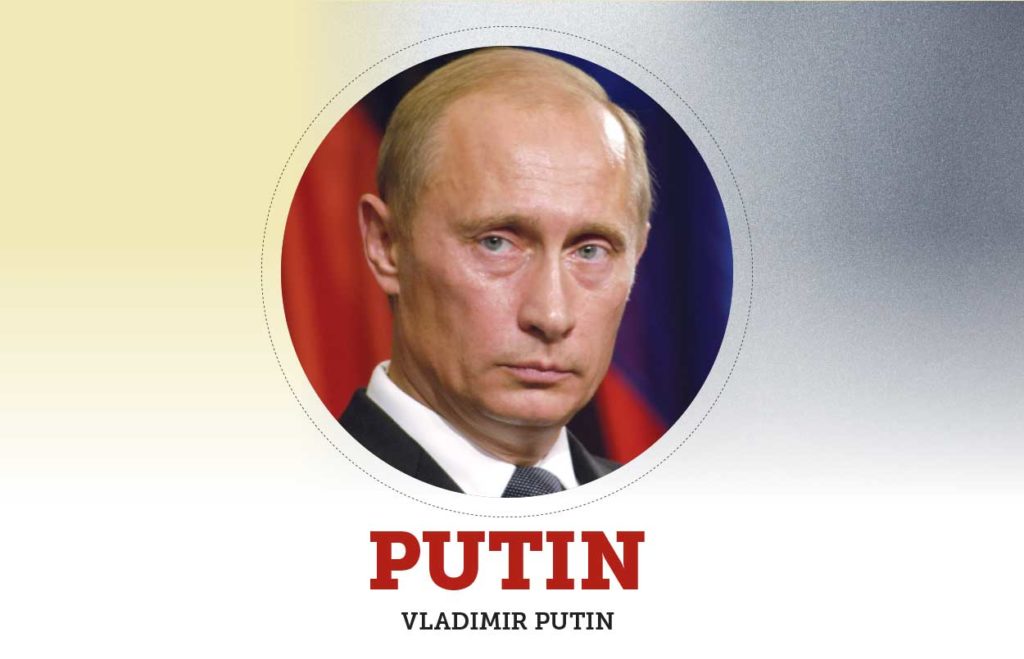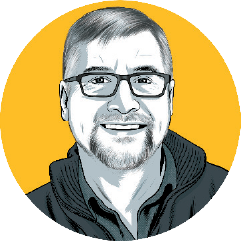One year after Russia invaded Ukraine, the stark differences between the countries’ leaders are clear

Within 24 hours of Russia’s Feb. 24, 2022, invasion, Ukrainian President Volodymyr Zelenskyy addressed his country in his soon-to-be trademark green military-style shirt. The speech reflected Zelenskyy’s belief that he was the nation’s servant. “I am grateful to everyone who saves people right now and helps maintain order in the state.”
Despite evidence that the Russians intended to kill him and his family, Zelenskyy pledged to “stay in the capital.” “My family is also in Ukraine,” he continued. “My children are…in Ukraine. My family… are…citizens of Ukraine.”
“If they try to take our country away from us, we will defend ourselves.”
—Volodymyr Zelenskyy
On the morning of Feb. 24, Zelenskyy—still striving then to prevent the attack—had asserted that “we don’t need the war…but if we’ll be attacked by the [enemy] troops, if they try to take our country away from us, our freedom, our lives, the lives of our children, we will defend ourselves. Not attack, but defend ourselves. And when you will be attacking us, you will see our faces, not our backs, but our faces.”
Zelenskyy’s steady and resolved stance surprised many world leaders and media
pundits. His election as Ukraine’s sixth president, and its first Jewish one, on April 21, 2019, had likewise amazed many—likely even the 73 per cent of people who voted for him. From 2015 to 2018, Zelenskyy had starred in the television comedy “Servant of the People,” portraying a high school history teacher unexpectedly elected as Ukraine’s president.
Zelenskyy’s steady and resolved stance surprised many world leaders.
On New Year’s Eve 2018, he interrupted the show to announce a real-life run for president. Zelenskyy would campaign against the incumbent government’s entrenched corruption. Many wondered if the bid was a prank.
Sworn in on May 20, Zelenskyy began delivering on that promise and improving the lot of average Ukrainians. The country struggled economically but, with each year, changes were noted. Perhaps, more importantly, Ukrainians seemed increasingly hopeful about the future of their country.
Ukrainian national identity visibly strengthened. Zelenskyy simultaneously worked to erode the popularity of the nation’s more right-wing nationalist movements while also developing greater ties with the West—with hopes for eventual European Union membership. All these developments angered Russian President Vladimir Putin and undoubtedly hardened his resolve to invade Ukraine.
When the attack began, Zelenskyy ended his speech by recognizing the people of Ukraine as the key to victory. “But now the fate of the country depends entirely on our army, on our heroes, our security forces, all our defenders,” he said. “And on our people.”

When Russian President Vladimir Putin announced to the world the invasion of Ukraine, his justification revealed much about the man himself.
“The purpose of the operation is to protect people who, for eight years now, have been facing humiliation and genocide perpetrated by the Kyiv regime,” he said. “To this end, we will seek to demilitarize and de-Nazify Ukraine.”
That Ukraine’s president was Jewish went unacknowledged. “It is not our plan to occupy the Ukrainian territory,” Putin continued. “We do not intend to impose anything on anyone by force. Freedom guides our policy, the freedom to choose independently our future and the future of our children. We believe that all the peoples living in today’s Ukraine, anyone who wants to do this, must be able to enjoy this right to make a free choice.”
Born in Leningrad in 1952, Putin joined the Soviet KGB security agency in 1985 and served as a case officer, rising to rank of lieutenant-colonel before the USSR’s collapse. Between 1990 and 1996, he was an advisor to the mayor of St. Petersburg. In 1997, Russian President Boris Yeltsin appointed Putin deputy chief of the presidential staff, and a year later he was made head of the country’s Federal Security Service (FSB). Putin quickly consolidated power and became acting president after Yeltsin resigned on Dec. 31, 1999. A series of constitutional amendments have allowed Putin to remain Russian president.
Putin had begun portraying himself as historically chosen to restore the Soviet Union.
Like many dictators, Putin carefully managed his public persona. When Russia annexed Crimea in 2014, Putin’s purpose was described as restoring the glory of the Soviet Union. Seizing Crimea righted a former “outrageous historical injustice.”
From restoration of this “lost province,” a move to conquer all Ukraine followed. Putin had begun portraying himself as historically chosen to restore the Soviet Union, calling its dissolution “the greatest geopolitical tragedy of the 20th century.”
We do not intend to impose anything on anyone by force.”
—Vladimir Putin
Through this perspective, Putin justified the Ukrainian invasion because its people were held hostage by a repressive, neo-Nazi government. “All responsibility for the possible bloodshed [ahead] will lie fully and wholly with the Ukrainian regime,” he explained. “No matter who tries to stand in our way…Russia will respond immediately, and the consequences will be such as you have never seen in your entire history. I hope that my words will be heard.”
Putin hoped to bully Zelenskyy’s government. Instead, he unleashed a firestorm of resistance.
Advertisement













